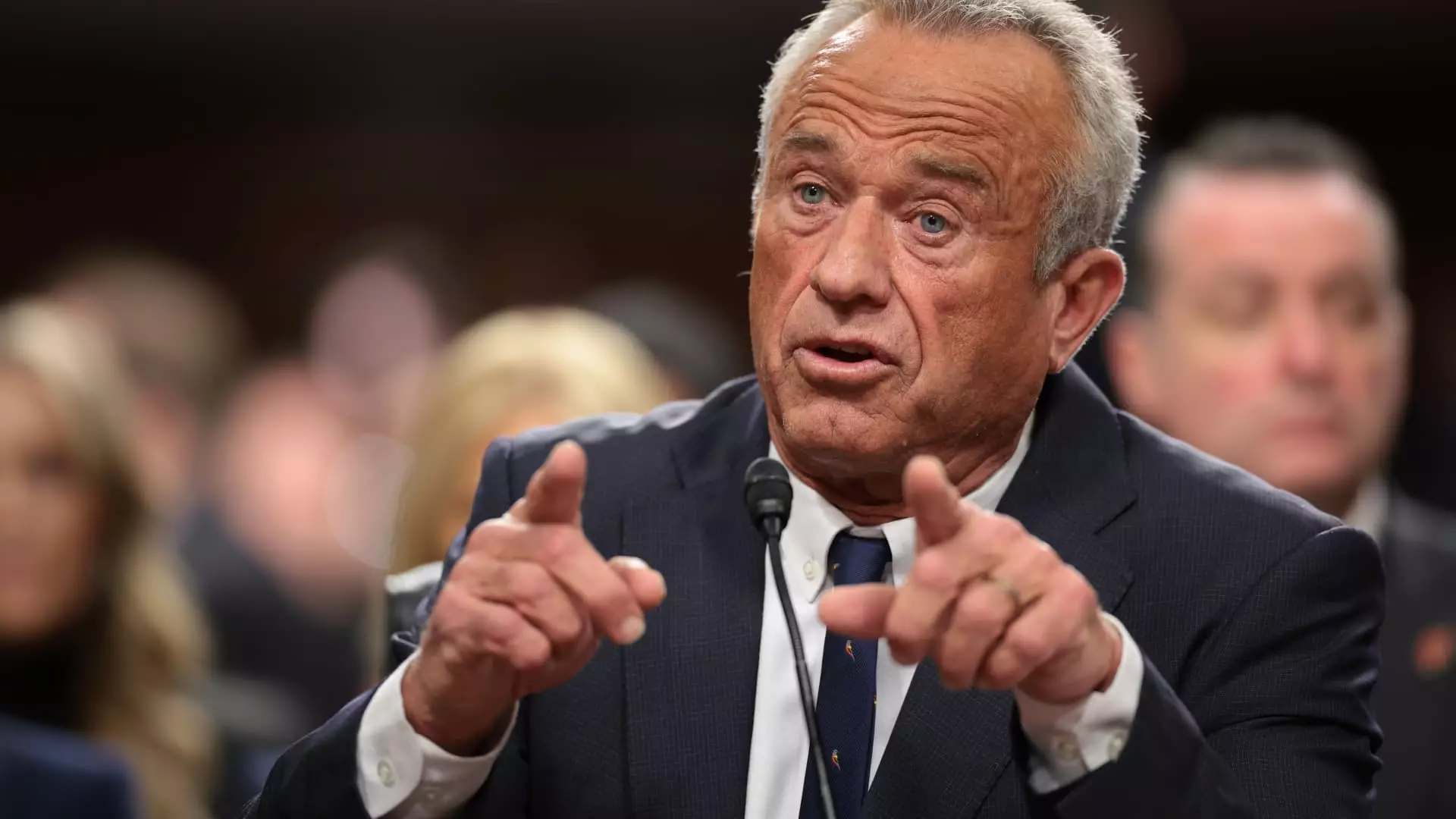The recent statements of Health and Human Services Secretary Robert F. Kennedy Jr. highlight a significant pivot in America’s political landscape regarding food safety and public health. His commitment to eliminating “the worst ingredients” from the American food supply is not merely a policy position; it’s a bold declaration aimed at changing the dynamics between consumers, food manufacturers, and regulatory bodies. This approach showcases Kennedy’s willingness to prioritize the health of the American populace over corporate interests—a stance seldom seen in the often contentious realm of food policy. With his audacious claim to remove harmful additives like artificial dyes, he sets ambitious targets that challenge the status quo.
The pressing need for reform in the food industry is not just a health issue; it’s a moral one. Consumer trust has eroded over the years, primarily due to an ingrained skepticism towards the ingredients in our foods. Kennedy’s interactions with top executives from major corporations like PepsiCo and Kraft Heinz illustrate a willingness to engage with industry leaders, yet the undertone of his message—cooperation will be necessary, but compliance is not optional—emphasizes the urgency of these changes.
A Cautious Skepticism
While the desire to reform the food system is laudable, there is a level of skepticism that can’t be ignored. Kennedy, known for his controversial positions—particularly on vaccination—invokes conflicting sentiments among the public. His approach could be perceived as overly aggressive or not sufficient depending on which side of the political spectrum you stand. Even within the realm of public health, skepticism about his methods might undermine the public’s confidence in him as a leader capable of navigating such a critical domain.
Moreover, the juxtaposition of his food safety goals with his agenda on immunization could prove problematic. As he pushes for a review of the childhood vaccination schedule, it’s crucial that he does not allow the public health initiative to be overshadowed by his controversial vaccine skepticism. The overlap of these two agendas must be managed thoughtfully, lest it cast doubt on the legitimacy of his health reforms and allow corporate lobbying to overshadow the healthcare narrative.
The Role of Industry
Kennedy’s outreach to food executives signals a significant shift in how the administration perceives its relationship with the industry. The Consumer Brands Association and leading food corporations have acknowledged that they are engaging with the administration on these critical issues. But there lies the rub: will these industry leaders take the initiative or merely react to pressure? For too long, the food and beverage industry has had a hand in shaping policy to its advantage, benefiting from lax regulations and a lack of transparency.
It’s evident that any genuine reform must involve accountability from these corporations. It’s not enough for them to say they welcome Kennedy’s vision; they need to demonstrate a commitment to deconstructing the very systems that led to the use of harmful ingredients in the first place. Additionally, the complex interactions between large corporations and government entities create a dysfunction that, if left unchecked, may compromise the overarching goals of reform.
Beyond Artificial Dyes
The removal of artificial colors and additives like Red No. 3 represents just the tip of the iceberg in a larger systemic issue concerning food safety. Issues such as pesticides, genetically modified organisms, and the high sugar content of food products also need to be given more than just a passing glance. Kennedy’s vision must expand beyond eliminating dyes; it requires a holistic analysis of what constitutes a healthy diet and how government policy can effectively encourage real, nutritious choices over processed substitutes masquerading as food.
At the heart of this conversation is the realization that meaningful change requires a shift in consumer behavior, and that begins with education. Rather than simply banning harmful substances, there must be a concerted effort to empower individuals with knowledge, enabling consumers to make informed choices that prioritize their health over convenience.
Shaping a Healthier Future
Ultimately, the road ahead for Robert F. Kennedy Jr. is fraught with challenges yet filled with opportunity. As he navigates the complexities of the food industry and public health, it is critical that he harnesses the same vigor with which he champions food reform to address the concerns surrounding vaccinations. The public’s health—and perhaps faith in the system—hangs in the balance. By tackling food safety with the urgency it demands, Kennedy has the potential to ignite a movement toward a healthier America, one bold step at a time.

